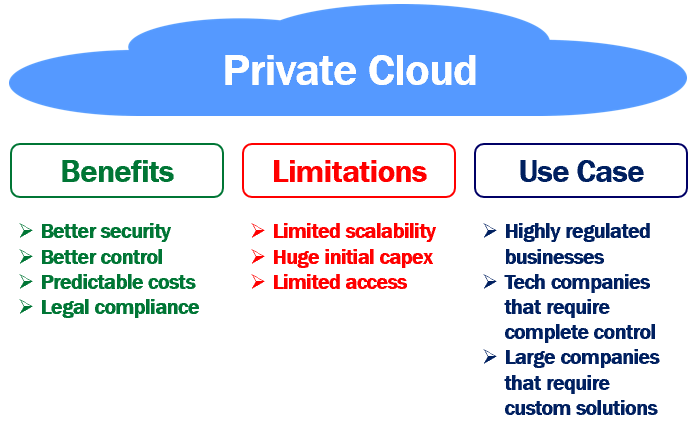Scroll Down⬇
Private clouds offer significant advantages over public clouds, but they have some drawbacks. Here are four of the most important:
1. The ability to scale up or down your cloud quickly is limited.
2. Private clouds are not as secure as public clouds.
3. Private clouds may require more technical expertise to set up and manage.
4. Private clouds are more expensive than public clouds.
The Disadvantages Of Private Clouds
Private clouds are a powerful tool when used correctly. They can speed up IT operations by giving administrators access to applications and data without having to share it with other organizations. They can also improve security by isolating applications and data from the public internet.
However, private clouds have some drawbacks. They can be expensive to set up and maintain, and they can be difficult to share with other organizations. They can also be less reliable than public clouds, because they are not always backed up or monitored as closely.
The Cost Of Private Clouds
Private clouds are a powerful tool for organizations, but they come with a cost.
Private clouds can be expensive to set up and maintain. They require more hardware and software than public clouds, and they can be more difficult to manage and scale.
Private clouds can also be less secure than public clouds. Private clouds are accessible by only certain authorized users, and they may not be as well protected against cyberattacks.
Private clouds also typically require a higher level of expertise to use than public clouds. Private cloud users must be familiar with the underlying technologies and be able to manage the complex configurations and security measures.
Private clouds are a powerful tool for organizations, but they come with a cost.
The Security Of Private Clouds
The biggest disadvantage of using private clouds is that they are not as secure as public clouds. Private clouds are constantly connected to the internet, which makes them vulnerable to hackers. Private clouds also do not have the same level of security as public clouds, which means that your data is not as safe.
The Flexibility Of Private Clouds
Private clouds offer a great deal of flexibility for businesses. You can control how your data is stored and accessed, which can be helpful if you want to keep your data confidential or if you need to keep certain processes separate from the public cloud. Additionally, private clouds are often cheaper than public clouds, which can be helpful if you need to use a specific application or service that is not available in the public cloud. However, private clouds can also be less reliable, as they are not typically subject to the same level of quality assurance as public clouds.
The Reliability Of Private Clouds
One of the potential disadvantages of using a private cloud is that it can be less reliable than using public cloud services. A private cloud is mainly used to enable organizations to maintain control over their data and applications, but this can also lead to increased reliability issues.
For example, if an organization uses a private cloud to store its data, the cloud provider might not be responsible for keeping the data safe if a breach occurs. If the data is stored on a private cloud, the organization would then have to manage the data risk on its own.
Another disadvantage of private clouds is that they can be more expensive to use than public clouds. This is because private cloud providers typically charge for the resources that they use (such as storage space and bandwidth).
In addition, private clouds can be less secure than public clouds. This is because private clouds are typically accessed by authorized individuals only, which could lead to security vulnerabilities if the private cloud is not properly managed.
Overall, private clouds have some advantages and disadvantages, which will depend on the specific situation.
There are a few disadvantages of using a private cloud. The first disadvantage is that private clouds are not as reliable as public clouds. This is because private clouds are not as well-connected and have less redundancy. The second disadvantage is that private clouds are expensive to maintain. This is because they require more resources to run than public clouds. Lastly, private clouds are not as open as public clouds. This means that they are not as customizable and do not have as many third-party integrations.

